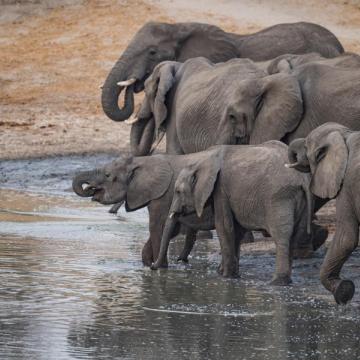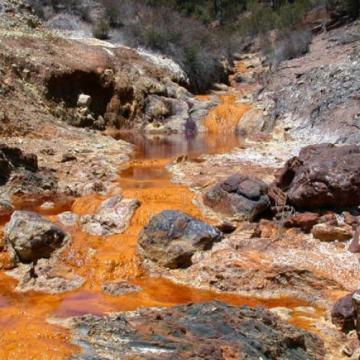-
NewsA trove of lithium-rich brine exists underground in Bolivia. Researchers conducted the first comprehensive chemical analysis of wastewater associated with mining the resource.
-
NewsModeling experiments show Pacific warm and cold patches persisted even when continents were in different places
-
NewsMeet the Marine Robotics and Remote Sensing Laboratory, learn more about its research focus, lab members' experiences in the lab and the opportunities the lab offers Duke students.
-
NewsMeet the Patino-Echeverri Lab, learn more about its research focus, lab member's experiences in the lab and the opportunities the lab offers Duke students.
-
NewsThe vast size of the ocean makes tracking human activity there challenging, but a new study provides a startling glimpse of how extensive this activity has become in recent years and how much of it occurs outside of public monitoring.
-
NewsAs the world endeavors to extricate itself from a carbon economy in favor of clean energy, Lee Ferguson is working to shed light on the potential environmental risks posed by bis-perfluoroalkyl sulfonimides, a primary electrolyte in lithium-ion batteries.
-
NewsAs the world undergoes the great energy transition — from fossil fuels to alternative energy and batteries — rare earth metals are becoming more precious.
-
NewsResearchers at Duke University’s Nicholas School of the Environment and Pratt School of Engineering are co-leading a new National Science Foundation-funded project that aims to boost economic development and climate resilience in coastal North Carolina through nature-based scientific and technological innovations.
-
NewsA new study by researchers at Duke University and WWF aimed to accurately track the expansion and retraction of small ephemeral water bodies from the wet to dry seasons across the KAZA region.
-
NewsFossil-fueled electrical grid’s enormous water use is often overlooked.
-
NewsClimate change threatens species worldwide. At the Nicholas School, we’re creating new geospatial tools that boost their odds of survival.
-
NewsMixing toxic coal ash into acid mine drainage may sound like an odd recipe for an environmental solution, but a new Duke University-led study finds that it can neutralize the drainage’s dangerously low pH and help reduce harmful impacts on downstream ecosystems—if you use the right type of ash. Using the wrong type of ash can create new contamination and not tame the drainage’s extreme acidity.
-
NewsThe global supply chain impacts of Russia’s invasion of Ukraine have exposed vulnerabilities in U.S. energy security and undercut the myth that the United States — or any major manufacturing economy — is truly energy independent, an analysis by researchers at the energy nonprofit RMI and Duke University finds
-
NewsSlashing emissions of carbon dioxide by itself isn’t enough to prevent catastrophic global warming, a new study shows. But if we simultaneously also reduce emissions of methane and other often overlooked climate pollutants, we could cut the rate of global warming in half by 2050 and give the world a fighting chance.
-
NewsProducing energy from fossil fuels uses or contaminated much more water than previously estimated, a new book by two Duke researchers shows.














